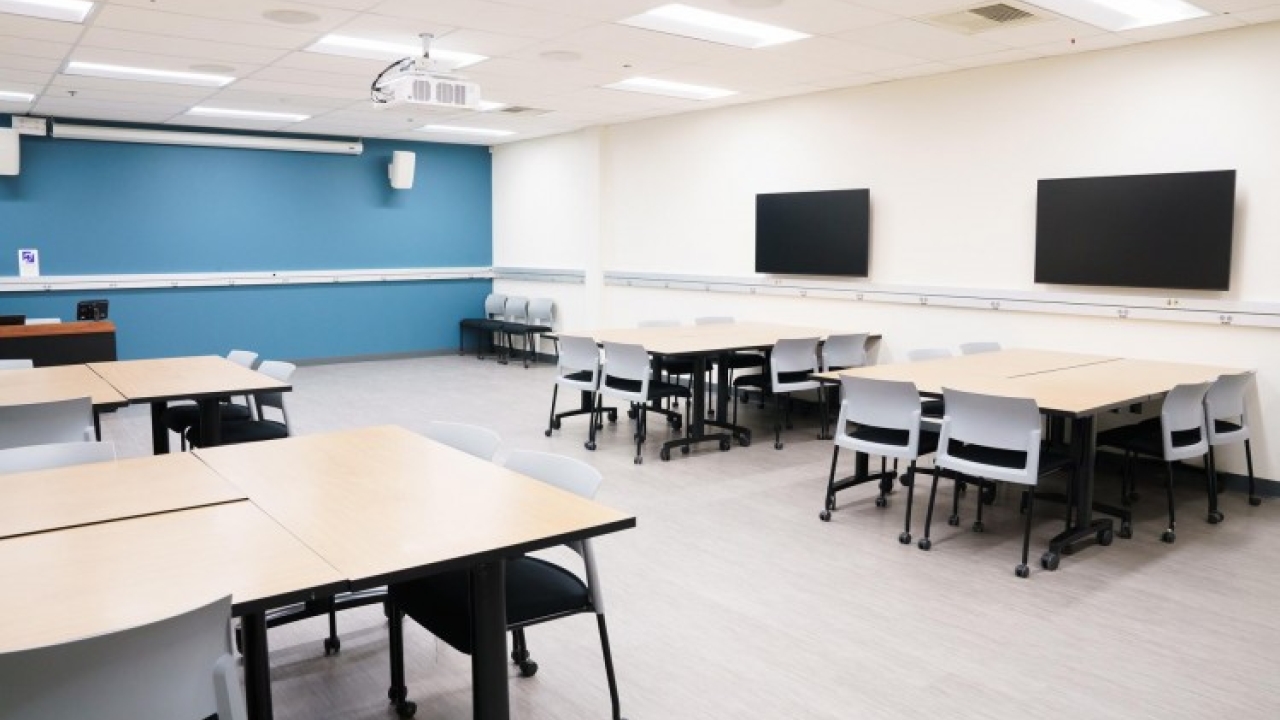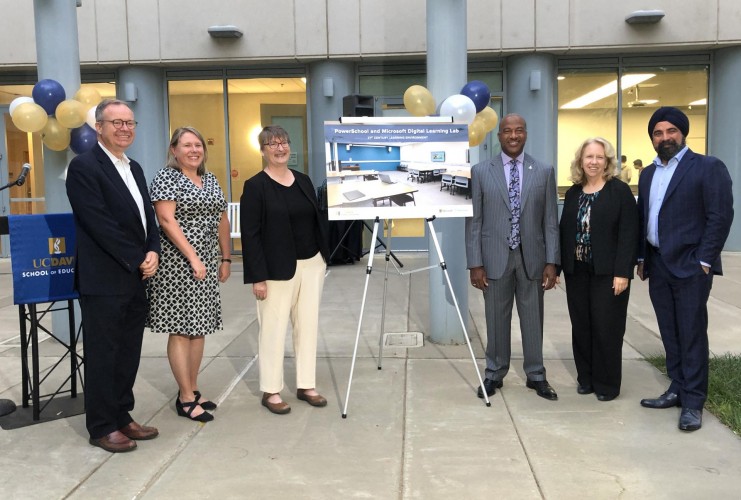
UC Davis School of Education Unveils New Powerschool and Microsoft Digital Learning Lab
Originally posted by UC Davis School of Education.
The University of California, Davis School of Education announced today the unveiling of the PowerSchool and Microsoft Digital Learning Lab, giving its students access to the training and tools they need, including state-of-the-art audio-visual equipment and leading education software solutions. The lab will allow tomorrow’s teachers to learn best practices, helping them to incorporate instructional strategies that leverage best-in-class technology.
In the lab, students who are preparing for their teaching credentials will work with leading education technology software solutions, including PowerSchool Unified Classroom™ Schoology Learning, the learning management system which school districts use to deliver personalized instruction, track student performance, and manage communication with families. They will also have access to the latest in audio-visual equipment including document cameras, laser projectors, a wireless sound system to assist those who are hearing impaired, and more, providing interactive workstations that faculty and students can collaborate on to digitally share ideas and information.
“A world-class teaching and learning environment is instrumental to advancing our faculty’s groundbreaking research—and to preparing the future teachers and education leaders who will put this knowledge to work in classrooms and communities across our state and nation,” said Lauren Lindstrom, Dean of the UC Davis School of Education. “A key element in our strategic vision for the future is revitalizing the physical learning environments for our faculty and students at every level. Together with PowerSchool and Microsoft, we can better prepare teachers in an environment suited to today’s model of collaborative innovation and hybrid education to support student learning.”
The revitalized computer lab hosted in the school’s Academic Surge Building comes at an important time as students are preparing to chart a new future for education, but currently learn in classrooms built in the pre-digital age. Students will be able to gather in learning pods and have their material on screen, allowing everyone to interact, while instructors can move about the room, giving feedback and bringing information to the entire class. Local students will be able to attend learning in-person while others from campuses in other parts of the state can attend remotely.
“For many teachers, there has been minimal exposure, training, and access to classroom technology to prepare for new models of teaching such as hybrid learning and data driven personalized learning plans that are now needed more than ever before,” said PowerSchool CEO Hardeep Gulati, who also serves on the UC Davis School of Education Board of Advisors, where he offers strategic guidance to drive the goals of the school. “The new digital learning lab and collaboration with UC Davis will help prepare the next generation of teachers in today’s rapidly changing way of teaching and learning by ensuring they have the needed tools, training, and development to be successful at their jobs.”
About the UC Davis School of Education
The School of Education was established in 2002, building on an 85-year tradition at UC Davis of working to strengthen public education. The School offers preparation for the California teaching credential, master’s and doctoral-level programs for educational researchers and practitioners, and professional development for educators throughout Northern California. The School’s faculty and nine research centers also conduct research in areas as diverse as academic language and literacy, college access and persistence, citizen science, autism and education, and transformative justice. Each year the School’s teaching credential candidates teach over 1,000 K-12 students, and program staff in the College Opportunity Programs serve an additional 7,000 K-12 students from under-resourced areas throughout Northern California.

